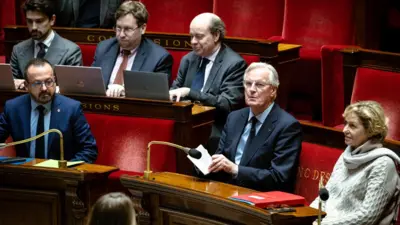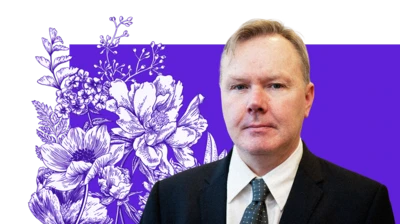We've updated our Privacy and Cookies Policy
We've made some important changes to our Privacy and Cookies Policy and we want you to know what this means for you and your data.
Swinney budget beckons end of concordat, say councils
Top Stories
- Author, Jamie McIvor
- Role, ґуПуґ«ГЅ Scotland local government correspondent
Scotland's two largest Labour councils have condemned the deal Finance Secretary John Swinney has offered local government in his budget statement.
The leader of the country's largest authority is warning that an extra ВЈ13m in savings will have to be found next year because of the funding settlement.
Glasgow City Council's Gordon Matheson said it now expected to have to find a total of ВЈ61m worth of cuts and savings next year.
Meanwhile, North Lanarkshire Council has denied outright that there is a partnership between the Scottish Government and local government.
Top Stories
Mr Matheson said: "How Mr Swinney can look a Glaswegian in the eye and tell them this spending review delivers a fair deal for this city I do not know."
The Labour politician also condemned the government for continuing with the council tax freeze without making any money available to councils to pay for it.
He said this would leave another gap of nearly ВЈ8m in the city's finances.
Top Stories
Mr Matheson said: "Mr Swinney says he wants capital spending to be the engine of economic growth. How then can he justify taking millions of pounds from the city that is the powerhouse of the Scottish economy in order to bail out a failed trams project in Edinburgh?
"This city will be another ВЈ13m worse off - on top of the ВЈ42m we have already had to save in next year's budget - thanks to Mr Swinney's decision to bail out Edinburgh and take money from Glasgow to pay for the Forth Road Bridge.
North Lanarkshire Council's leader Jim McCabe, who is also the leader of the Labour group at the council umbrella body Cosla, said there was no partnership between the Scottish Government and local government as a whole.
He said: "Mr Swinney is fond of talking about continuing to work in partnership with local government. The simple truth is that, at present, there is no partnership.
"He claims to have agreed an approach to delivering joint priorities with the Cosla leadership; there is no such agreement. What we have had are some discussions on certain proposals. These discussions are nowhere near a conclusion because there is no clarity.
"For example, one proposal is that local authorities will use their prudential borrowing powers to fund major capital works, with that borrowing being refunded by the Scottish Government when it has powers to do so."
"But there is no clarity on key issues."
Mr McCabe asked three questions which he wanted Mr Swinney to answer. They were;
- will the Government commit to refunding not just the borrowing but the deposit and interest accrued on that borrowing?
- will the slack in financing left by authorities who are unable to borrow be expected to be picked up by councils like my own?
- and will North Lanarkshire be expected to borrow to finance projects in other parts of the country, like the Aberdeen by-pass, which are of little or no benefit to the communities we serve?"
Crucially, neither council leader has publicly threatened to reject the government's objective of freezing the council tax again next year as part of a plan to freeze it for the entire length of this parliament.
In practice, if a council raised the council tax they would lose money from the government meaning the increase would have to be even greater.
Mr McCabe's comments were echoed by Cosla itself which accused the government of putting "an unhelpful level of spin" on their discussions.
Cosla's finance spokesperson, Councillor Kevin Keenan, said: "There were talks held between our political group leaders and the government in advance of today's announcement.
"These were late in the day and the furthest we went during them, mainly due to the lack of detail forthcoming from government, was that we indicated that we may be prepared to deliver on some of the issues that the government wanted us to.
"There were no agreed priorities, we said that in order to maintain a partnership, there may be things that we would be prepared to do to a degree, but these are not joint priorities."
Top Stories
More to explore
Most read
Content is not available








